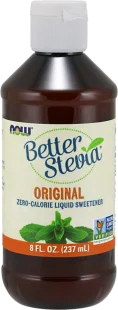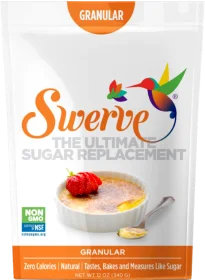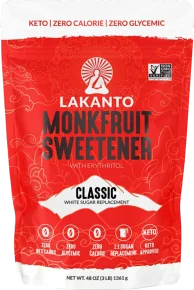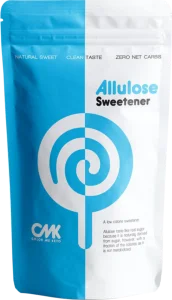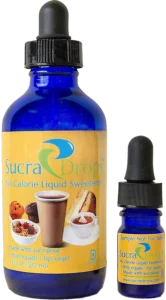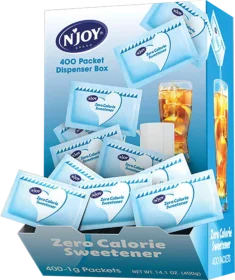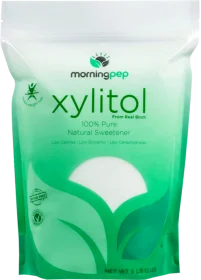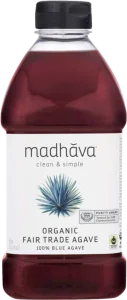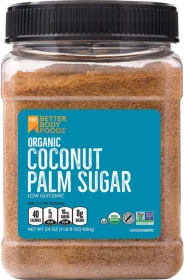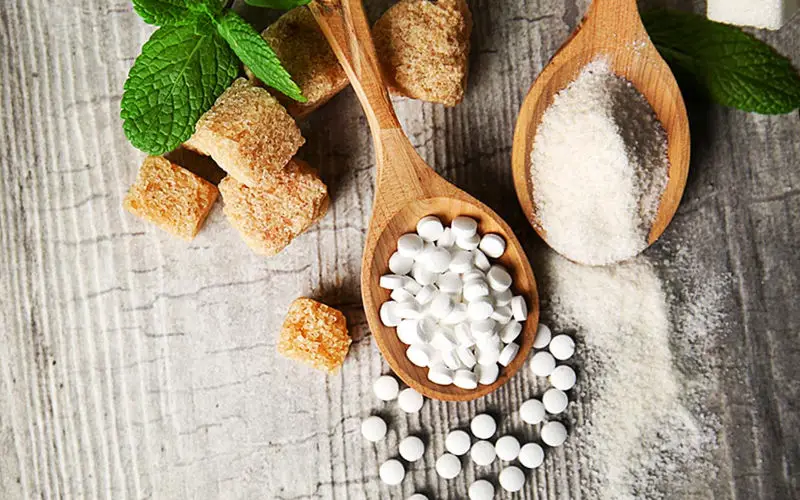
Is it essential to give up sweets if blood sugar has increased, or are there other medical contraindications for sugar consumption? But what about those who decided to lose weight? There is a solution! The main thing is to make the right choice.
We examined all of KETO’s most famous food sweeteners and non-nutritive sugar substitutes to find their differences and benefits.
Do not despair if the doctor or nutritionist categorically requires that sugar be excluded from the diet. Do not eat sweets and refuse sugar – these are entirely different things. The solution to the problem can be a nutritive sweeteners and non-nutritive KETO sugar substitutes.
Also, the fact that sugar is not only a source of excess calories but also a product that increases the risk of developing cardiovascular diseases, caries can be a comfort to you.
Excessive consumption of sweets negatively affects the condition of the skin and mucous membranes, and also increases appetite.
Paradoxically, it is a fact: in nature, there are many sweet foods. But at the same time, new non-nutritive sugar substitutes are synthesized continuously and invented – substances that are many times sweeter than natural sources.
How to classify Nutritive and KETO Sweeteners?
They can be distributed by:
- Degree of sweetness, since almost all of them, are superior to sucrose in this indicator
- Depending on calorie content, and this will be important for patients with diabetes
But the easiest way is to divide sugar substitutes into two groups:
The first group includes best nutritive sweeteners that take part in the metabolism and should be used with known precautions.
The second group is best non-nutritive; they are not included in the metabolism and metabolic processes and are excreted without any consequences. They are divided into bulk and high-intensity sugar substitutes. High-intensity sweeteners mean that almost all representatives of this group are much sweeter than sucrose.
Consider the products used for culinary purposes, as well as for replacing sugar in various diseases, which include the first and second groups of sugar substitutes.
Non-nutritive KETO Sweeteners
This group of sugar substitutes includes synthetic products, and the only Stevia is an exception.
But the main thing is that all representatives of this group are not metabolized in the body, and do not integrate into the processes of carbohydrate metabolism, or into other biochemical cycles.
It allows it to be widely used in various diets low in calories, for weight loss, and also to prevent weight gain.
ERYTHRITOLSwerve Sweetener The Ultimate Sugar Replacement
Erythritol or “melon sugar”, is a new popular natural sugar substitute that does not cause an increase in blood sugar. It is odorless, highly soluble crystals in water, very similar to sugar.
This substitute was discovered about 40 years ago; its source is natural starch-containing raw materials, most often corn. Melon sugar is called because it is present in this culture, as well as in grapes.
Erythritol does not cause tooth decay. Erythritol sweetness is about 70% of regular sugar. Therefore, to achieve equal sweetness with sugar, this substitute needs to be added a little more, and it is called “bulk sweetener“.

The body well tolerates the substitute even in slightly larger dosages than regular sugar, which distinguishes it from sorbitol and xylitol, which have a side laxative effect. Recently, erythritol can often be found in combination with stevia, as it can improve its specific taste.
The caloric content of erythritol is so small that in most countries it is taken equal to zero. The reason for this zero-calorie content is small molecules. They are absorbed in the intestines very quickly, and, once in the blood, are immediately excreted by the kidneys.
The Pros and Cons
Erythritol has a lot of advantages, and only one small drawback. Since it has no energy value at all, it is not of interest to microorganisms either. Therefore, erythritol does not cause caries. Because even if it remains in the oral cavity, it is not a source of food and reproduction for saprophytes and pathogenic microorganisms.
It is used in the food industry in developed countries – the USA, Japan, Finland, Canada. Erythritol can be successfully used for the production of confectionery, drinks, as a regular sugar substitute, as well as in the cosmetic and pharmaceutical industries.
While taking a large amount of erythritol, causes a laxative effect, but this effect develops with an overdose of almost all sweeteners, both metabolic and intense.
MONK FRUITLakanto MonkFruit Sweetener Sugar Substitute Keto Non-GMO
Monk Fruit (Monk Fruit, Luo Han Guo), originally from China, also known as Lo Han Guo, is a very sweet (about 300 times sweeter than sugar). The sweetener is used in traditional Chinese medicine to treat obesity and diabetes.
It is not very easy to find in its pure form, it is usually sold in mixtures with other sweeteners, such as erythritol, which is also suitable for our purposes.
Lo Han Guo Extract (Monk’s Fruit) is an all-natural product derived from tropical fruit Arhat (Lo Han Guo), also known as Buddha fruit. Monk Fruit is a green pumpkin grown in Southeast Asia.
It is currently used as a zero-calorie sweetener and has become a popular alternative to other low-carb sweeteners. This is because Monk fruits contain antioxidants that provide some health benefits that other sweeteners do not.
Used by Chinese monks since the 13th century, it is widely used in traditional Chinese cuisine. Due to its properties, Lakanto Monkfruit Sweetener sugar substitute is ideal for preparing sweet dishes. It is resistant to heat and neutral in an acidic environment.

One teaspoon of raw fruit contains only 0.4 grams of carbohydrates. This amount is so small that it will take up to 80 teaspoons to eat a daily keto-norm, that is, 30 grams of carbohydrates. And even in this case, a good chance that you will remain in ketosis.
Monk Fruit is a natural sweetener made from dried fruit extract. The extract is 150-300 times sweeter than table sugar, does not contain calories and carbohydrates, and does not increase blood glucose.
The Food and Drug Administration has recognized that the monk’s fruits are “generally recognized as safe (GRAS)” for everyone, including pregnant women and children.
Despite this, since the fruit of the monks is relatively new to the mass market, there is no scientific research into the effects of prolonged use.
The Pros and Cons
The Monk Fruit contains sweetness from natural compounds called mogrosides. It is generally safe for people with diabetes because it does not increase blood sugar.
Monk Fruit has no calories, carbohydrates, or fat, so it can be an excellent option for those who are watching their waist. You can reduce substantial calories and carbs by simply replacing table sugar throughout the day with a healthy monk fruit sweetener.
Along with many benefits, the fruit monk has several disadvantages.
The fruits of a monk are challenging to grow, collect, and dry. And it’s also expensive to import and process. That’s why the monk’s fruit sweetener is more costly than other low-calorie sweeteners. That’s why there are so few monk sweetener options on your shelves in local supermarkets.
Also, some people do not like the aftertaste of a fruit monk. Nevertheless, many find the taste pleasant and less bitter than other sweeteners, especially artificial ones such as saccharin and aspartame.
An allergy to monk fruit is rare, but a small risk remains. The monk’s fruit is a member of the Curcurbitaceae family (also known as the pumpkin family), which includes pumpkin, squash, cucumbers, and melons. Your monk fruit allergy risk is higher if you are allergic to other pumpkins.
ALLULOSEColor Me Keto ALLULOSE Granular Powder Natural Keto Sweetener
Allulose is the newest on the market and one of the closest low-calorie sweeteners to sugar. It consists of monosaccharide (simple sugar), which is found in small amounts in wheat, some fruits (e.g., jackfruit, figs, raisins), and some high-carb sweeteners (such as maple syrup and brown sugar).
Our body does not know how to absorb allulose, and it is excreted from the body. Therefore, it does not have a glycemic index. But this is not just an inert sweet substance. Several clinical and animal studies have shown that it can lower insulin and blood sugar levels.
Some studies have even found that it has antioxidant properties. It makes this sweetener an almost perfect alternative to white sugar.
Nevertheless, the long-term effect on the microbiome of our digestive system is still unknown. So far, the FDA has recognized the FDA as safe.
On the one hand, it is positioned as a natural product, but it is made at the factory, and its consumption is in vast quantities, much larger than in nature – is this good?
In the US allulose is made in Mexico from corn, you can still make it from beets and sugarcane, but mostly from corn – it’s a cheap source! The process is called enzymatic conversion; special enzymes are used.
The Pros and Cons
Allulose contains 0.2 cal/g.
Why is it interesting: allulose is not metabolized, and just excreted by the kidneys (what is done with the microbiome when used in large quantities and for the long term is unknown).
It differs from erythritol in that it does not ferment in the digestive tract; therefore, in large quantities, it does not cause bloating.
The culinary properties of allulose:
- Of all sugar substitutes closest to sucrose (white sugar)
- 30% less sweet than sucrose
- Pure taste, without a “cool” aftertaste, like erythritol
- Dissolves (no sand effect on teeth in baking)
- Melts (unlike other sweeteners, also convenient in cooking)
- Lowers the freezing temperature (ice cream is good)
- Easy to combine with monk fruit, Stevia
High-intensity Sugar Substitutes
STEVIANOW Foods Better Stevia Liquid Zero-Calorie Sweetener
Another natural sugar substitute that is rapidly gaining popularity is Stevia. In general, this is the name of the genus of perennial plants – herbs growing in South and Central America. This plant is the raw material for this sweetener.
In the early 1970s, the Japanese began cultivating Stevia as an alternative to artificial sugar substitutes such as cyclamate and saccharin, which were suspected of having carcinogens. Today, Stevia is a natural substitute for premium sugar, the use of which has no side effects.

It is 200 times sweeter than sugar but has a rather specific, herbal aftertaste. For commercial purposes, it is called “honey herb extract”, and it is quite possible to use Stevia for the nutrition of diabetics since its glycemic index also does not differ from zero.
Unlike other substitutes for this group, which are artificially synthesized compounds, Stevia is a natural product. For eating it for food, there is a limit on the allowed dosage, which is 2 mg per 1 kg of a person’s weight per day.
The Pros and Cons
The advantage of Stevia is its safety, a kind of pleasant aftertaste, the ability to combine a substitute with various tea compounds.
It does not affect the level of glucose in peripheral blood, and patients with diabetes mellitus and impaired glucose tolerance can use it.
But at the same time, it is necessary to maintain the allowed dosage and remember that the main component – stevioside – can lower blood pressure. Therefore, it should not be used in patients with hypotension, and against the background of the beginning of antihypertensive therapy.
SUCRALOSESucraDrops Bottle of Premium Liquid Sucralose Sweetener
Sucralose is a relatively new, high-quality, and non-degradable sweetener when heated. It was developed by the British in 1976. The substitute is made from regular sugar and has similar taste characteristics.
Sucralose lacks an unpleasant artificial aftertaste, and it is safe. This premium sweetener has been repeatedly tested not only in animals but also in humans. As a result, it was proved that it is entirely safe for all population groups, including children and pregnant women.
Besides, sucralose is 500 times sweeter than sugar and does not contain calories, and most importantly – it does not affect blood sugar (glycemic index is zero). You can use sucralose for cooking – it fully retains its qualities during heat treatment.
It is widely used in the confectionery industry, for the preparation of high-quality carbonated drinks, for sweetening fruit juices, and for the production of concentrated syrups.
Since it is not a nutrient medium for the growth and reproduction of microorganisms, it is used for the production of chewing gum.
The cost of sucralose is quite high. It is available in small packages, and it is still quite profitable to use it.
The Pros and Cons
Many will find that since the “cost of sweetness” is the same, then it makes no sense to look for this rather expensive substitute.
But it should be remembered that sucralose:
- Is not metabolized
- Does not turn into fat
- Does not contribute to caries
- Can be used by patients with various disorders of carbohydrate metabolism
- Does not affect the fluctuation of glucose in the blood
The advantage of sucralose is its widespread use in developed countries, and in Canada, it has been approved for use for almost 30 years, and so far, no cases of side effects have been identified.
Therefore, this sweetener is included in the rating of highly effective and safe sugar substitutes that do not affect metabolism.
The drawback of sucralose maybe its shortage in the pharmacy network, and it is necessary to purchase it in specialized online stores selling food additives and health products, or you can find it on Amazon.
ASPARTAMEN’Joy Zero Calorie Aspartame Sweetener Packets
Aspartame, or the food supplement E 951, unlike sucralose, has a barely noticeable theoretical calorie content. If you take 2lb of aspartate, then its energy value will be only 4 kilocalories. But if you consider that it is 200 times sweeter than sugar, then with this amount of aspartate, you can replace 400lb of regular sugar. Therefore, such low-calorie content is not taken into account.
Aspartame is synthesized from natural compounds; its source is aspartic acid and the amino acid phenylalanine. It has good taste and production from natural ingredients that led to the high popularity of this sweetener in the early eighties of the last century.
Aspartame, unlike sucrose, acts slowly on taste buds, but it leaves a certain aftertaste longer than regular sugar. For this reason, it is more pleasant to drink tea with aspartame.
The Pros and Cons
The advantage of aspartame will be its low price, and you can buy it in many supermarkets and grocery stores, it has almost zero-calorie value.
However, this compound is considered unstable and is destroyed by heating. This is why aspartame is relatively rarely used in the food industry.
At one time, it was believed that aspartame is harmful since it breaks down in the body, releasing methanol or methyl alcohol. This fact has been used to criticize aspartame since methanol is a highly toxic poison.
But if you make competent calculations, it turns out that methanol in the human body due to the use of ordinary food is formed in larger quantities than due to the breakdown of aspartame.
So, if you drink 200 mg of natural juice, and compare it with a carbonated drink sweetened with aspartame, then in the first case, the production of methanol will be three times as much.
Also, methanol in our body is synthesized from fruit pectin, in quantities significantly exceeding those in the processing of aspartame. Therefore, aspartame is not only affordable but also a safe means of replacing sugar.
Nutritive Sweeteners
However, here should indicate that nutritive sweeteners can also be dangerous in case of an overdose and can provoke metabolic disorders.
Sometimes this is due not so much to the fact that they participate in carbohydrate metabolism, but to psychological relaxation. People are sure that sweets are safe for health, and begin to absorb them in large quantities.
As a result, there is a metabolic “skew”, and, as a consequence, changes in diet.
A critical link in the pathogenesis is the establishment of conditioned reflexes and the formation of connections in the central nervous system that accustom a person to an excess of sweets.
XYLITOLMorning Pep Pure Birch Xylitol Sweetener Keto Diet Friendly
Xylitol is a relative of sorbitol, and the xylitol molecule is shorter than the sorbitol molecule by only one carbon atom, representing pentatomic alcohol.
It is produced in the industry by chemical means, from various agricultural wastes, and even from wood. Therefore, xylitol is an inexpensive substitute, and the cost of a package of 1lb of food xylitol costs, on average, 10 dollars.
Xylitol is not as sweet as fructose, but also not as high-calorie. The glycemic index of xylitol is only 7 units. Xylitol has been used as an effective sweetener for about 50 years. And during this time, its positive and negative sides have been well studied.
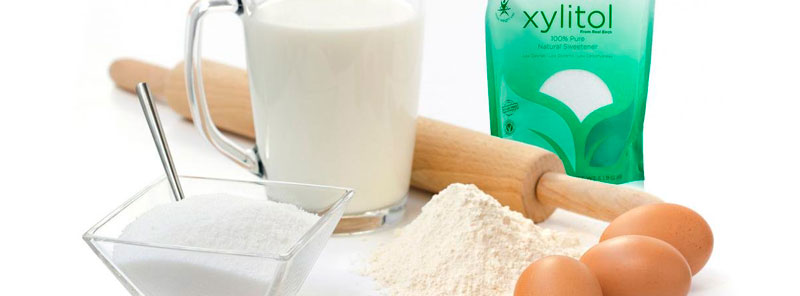
Compared to sugar, it contains almost half the calories and is actively used in overweight and diabetes. It does not cause caries and is part of the compositions for the manufacture of chewing gum.
As a laxative and choleretic agent, it is prescribed in a dosage of 50 g or more during the day. And in the food industry, it is widely used for the production of confectionery, carbonated drinks, ice cream, and jam.
A valuable property of xylitol is the preservation of sweets when heated, and it is widely used for the production of various varieties of bakery products, which is shown primarily for obese people and diabetics.
The Pros and Cons
Xylitol plus will be its low price, the ability to use to cleanse the liver, as a laxative.
Xylitol is not afraid of high temperatures, and can you can use it for stewing, jam, and baking. But it is not recommended to exceed the amount of xylitol more than 30 g per day.
It can cause allergic reactions, create short bursts of insulin and sugar in the blood, as well as increase appetite and cravings for sweet foods.
With its frequent use, it can contribute to the development of dysbiosis, accumulate in the body, and contribute to the activation of convulsive activity of the cerebral cortex in patients with epilepsy.
SORBITOLBulksupplements Sorbitol Powder
This natural nutritive sweetener is also heard by many. Like xylitol, it belongs to sugar alcohols in chemical composition.
Sorbitol is a distant relative of ethyl alcohol, but instead of two carbon atoms in its molecule, there are six atoms, and instead of one hydroxyl group (OH), there are also six of them.
Like all similar alcohols, this sweetener creates a slight sensation of coolness in the mouth. Sorbitol is 95.5% pure sorbitol, 0.5% ash, and 4% moisture, the chemical formula is C6H14O6, and in the food industry, sorbitol is designated E420.
It was first isolated from the berries of a mountain-ash tree, from which it got its name (lat. Sorb (um) – mountain ash and -it (e) – suffix indicating membership in polyhydric alcohols). Currently, sorbitol is produced from corn starch and other similar starchy types of raw materials.
Unlike the intense sweeteners, sorbitol is almost completely absorbed by the body in terms of sweetness inferior to sugar. The calorie content of sorbitol is 354 kcal, which is slightly less than that of regular sugar.
But the glycemic index of sorbitol is shallow – only 9 units, which is significantly less.
It is used very widely both in the food industry and in pharmaceuticals, in the cosmetics industry, due to its hygroscopic properties, it absorbs moisture.
The Pros and Cons
The advantage of sorbitol will be the saving for the body of B vitamins, which, when used, are little consumed.
It has a pronounced laxative effect: if you immediately take about 50 g of sorbitol, then you should “expect” diarrhea, so it is used to treat constipation.
Sorbitol is not recommended for use as a substitute for long-acting sugar, as it can accumulate in the body, and cause dysfunction of the retina and peripheral nerves.
People with a mild course of uncomplicated diabetes mellitus, both the first and second types, can use as a sweetener,
but do not exceed the recommended amount of 30 g per day.
Overuse threatens bowel syndrome, impairs fructose digestibility. An excess of the substance in the cells can provoke diabetic retinopathy and neuropathy.
Naturally Sweet Foods – Nutritive Sweeteners
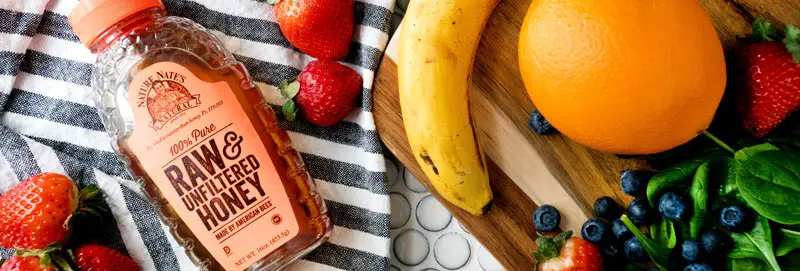
HONEYNature Nate’s 100% Pure Raw & Unfiltered Honey
As noted above, it is indeed possible to replace sugar with honey, which is quite close in taste to it. Natural honey is considered to be a useful product – it contains vitamins B and C, protein, iron, potassium, and many other trace elements. The average glycemic index of honey is 50-70 units.
Unlike sugar, it is highly recommended not to add honey to hot drinks, because when it is heated to 50 degrees, it loses all its beneficial properties and turns into a carcinogen. That is why honey cannot completely replace sugar.
Besides, for those who follow their figure, honey is not suitable because of the calorie content. Thus, if you replace sugar with honey, you can get a slightly more healthy product, which, at the same time, contains all the harm of sugar.
MAPLE SYRUPCoombs Family Farms Maple Organic Syrup
One of the best natural sugar substitutes is maple syrup. Its manufacture was organized in Canada from sugar maple trees, and it can be of several varieties. Maple Syrup is healthy and contains over 50 different antioxidants.
Its taste is close to white sugar, and it is ideal as an additive to tea or coffee.
Maple syrup is close to sugar in glucose content, and in calories, it is much better for those who want to lose weight. Maple syrup has 2 times fewer calories, and if you are on a diet, it is better to add maple syrup instead of sugar in tea, coffee, granola, cereal, and other products.
Also, it is useful because it is a natural immunostimulant.
The chemical composition of maple syrup includes various antioxidants, B vitamins, as well as minerals: calcium, phosphorus, potassium, iron, zinc, etc. Besides, maple syrup can be called a leader among other products consumed by humans, by the amount of calcium stored in it and potassium.
Also, maple syrup has another essential quality – a relatively small amount of purines and oxalates in its composition leads to the fact that this product does not cause food allergies (calories). And this makes it a highly desirable dietary item for many people.
AGAVE NECTARMadhava Blue Agave Organic Low-Glycemic Sweetener
On various sites selling agave syrup, as well as on resources dedicated to healthy eating, you can find many claims that agave syrup is a healthy dietary product recommended for those who monitor their weight and health.
These statements are based on a low glycemic index of syrup, 17, which means that the carbohydrates contained in the syrup do not cause a rapid jump in blood sugar and increased insulin production. This property makes agave syrup a popular product among people with diabetes.
Another argument in favor of agave syrup is that its caloric content (310 kcal / 100 g) is 20% less than that of sugar. And since agave syrup is one and a half times sweeter than sugar, then it needs less, which means the total calorie content will be even lower.
COCONUT SUGAROrganic Coconut Palm Sugar Sweetener Substitute
Calories: 381.56 kcal.
Coconut sugar is a product made from coconut palm juice. Sugar from coconut palm juice has a pleasant taste, similar to the taste of caramel. It is often compared with brown sugar in terms of taste.
The beneficial properties of coconut sugar are due to its valuable chemical composition. It contains potassium, magnesium, zinc, iron, vitamins B3, B6. Coconut sugar is considered more beneficial for the body when compared with a cane, brown, or even maple syrup.
The glycemic index of coconut sugar is 35, which is considered the lowest among similar products. A few years ago, cane sugar was considered the most useful sweetener, with a glycemic index of 68.
CANE SUGAR
The myth is widespread that cane sugar is more useful than white literally at times. People are ready to overpay for it in the store, while in reality, neither beet nor cane sugar is better than ordinary white.
There is no difference for the body in terms of benefits and harms between cane and white sugar.
RAISINS
Raisins are rich in antioxidants and fiber and can entirely replace sugar in baked goods. Try adding it instead of sugar, for example, in a cupcake, previously ground in a blender.
DATES
Dates have a low glycemic index and, at the same time, have a slightly viscous consistency. As a result, they can be an ideal basis for the test of homemade fruit and cereal bars. Such sweets will not only not be harmful, but also satisfy the needs of even the biggest sweet lovers.
BANANAS
Bananas will look great in pastries. They will give the buns and muffins a sweet tropical flavor and more than replace sugar. Yes, most likely, with it, your muffins will not be especially magnificent, on the other hand, and your waist will remain within reason.

Best Nutritive and Keto Sweeteners – FAQ about Sugar Substitutes
Any attempts to forcibly limit or completely exclude sweet food from the diet cause a person to feel uncomfortable. In this regard, nutritionists faced a difficult task – to preserve the familiar taste properties of food and drinks consumed and, at the same time, to do it without harm to the body.
Several requirements are put forward for this category of goods, without which their existence does not justify itself.
In second place is a sweet taste.
No less important is the absence of a negative effect on carbohydrate metabolism.
And finally, a high degree of solubility in water (in addition to tea, coffee, etc.)
Difficulties lie on the way to the synthesis of sweeteners. The connection should be completely harmless. It can be sweet but poisonous. Perhaps the most famous historical example is lead sugar or lead acetate. It is known that in the days of ancient Rome, it was formed in lead vats.
A compound with a metal, acetic acid formed beautiful colorless crystals of lead acetate, which was called “lead sugar”.
Its use and addition to wine are associated with an unusual, and rather rich flavor, which he gave to wine. But it turned out to be deadly poisonous, caused lead colic, and led to acute and chronic poisoning.
The first official sanitary document that has the highest force of law, and even more, is the papal bull of Alexander VI, dated back to 1498 on prohibiting the use of lead sugar.
Also, the synthesized substitute should not affect the metabolism, have an intensely sweet taste, and dissolve well in water. As a result, out of several tens of thousands of compounds, not so many sugar substitutes remained. And all of them have been tested by time and scientific research.
This review includes modern sugar substitutes, which you can successfully use for various purposes.
Why is this being done?
Firstly, in the search for safe products that can reduce body weight comfortably and without consequences.
The second reason is to avoid excess weight gain associated with a poor diet. Everyone knows that fast carbohydrates are the primary source of fat, especially in conditions of physical inactivity or reduced physical activity.
Sweets and regular sugar are the leaders in the speed of transition to adipose tissue.
Sugar substitutes are also necessary for patients suffering from diabetes mellitus and a high risk of cardiovascular disease. Sweet natural foods can significantly increase appetite, this leads to overeating, and they contribute to weight gain.
Is it possible to completely abandon sugar and switch to its substitutes?
Yes, you can. The modern chemical and food industries produce a large number of different sugar substitutes, both natural and artificial.
Sweeter than sugar?
Their separation determines the classification of nutritive sweeteners and KETO sugar substitutes by a degree of sweetness relative to sucrose.
For example, substances that are close in sweetness are called “sweeteners” (sometimes they are called “bulk sweeteners”), and those that are several times sweeter than sucrose are called “high-intensity sweeteners”.
Some of them have water-retaining properties and require a certain amount of heat to dissolve, and because of this, the liquid itself cools.
Such properties are inherent in xylitol, sorbitol, and mannitol, therefore they are often used as moisture-retaining agents to reduce the caramelization of the sugar to cool the oral cavity in candy.
Also, bulk sweeteners can replace sucrose in ice cream due to their technological features to prevent the formation of a granular structure due to crystallization at low temperatures.
With or without calories?
Another important division of sweeteners is their calorie content. High-calorie varieties are not welcomed during a KETO diet aimed at weight loss but are quite suitable for people with diabetes. And non-nutritive KETO sweeteners that have no contraindications, except for individual intolerance.
Sugar substitutes (except fructose) and sweeteners are not food products but are food additives.
Which sweetener to choose?
All best nutritive sweeteners and non-nutritive KETO sugar substitutes will not be harmful if used wisely. In particular, you should pay attention to recommendations for their daily use of manufacturers’ labels.
Of course, it is preferable to choose a natural sugar substitute. By its composition and properties, natural sweeteners are safe. And if the issue of the use of artificial sweeteners sometimes causes controversy, then there are no doubts regarding the safety of the application for natural ones.
If you are a conservative and skeptical of innovations, choose xylitol or sorbitol – these sugar substitutes are time-tested. If you want to try a new product – feel free to buy stevia, erythritol, or sucralose.
In any case, your choice will not bring you the slightest harm but will provide a sweet life.
Where to buy a sugar substitute?
Sugar substitutes are available at the pharmacy. Its also sold in supermarkets, in the departments of diet food. Sometimes sweeteners can be found in regular stores next to natural sugar. But often, these products are ordered online. In general, finding sweeteners is easy if desired.
The main thing is to read the instructions for use on the package carefully.
What is sugar and why is it harmful?
Sugar or sucrose (this is correct to say from chemistry) is a food product obtained by processing sugar cane and sugar beets.
Sugar intake saturates the body with the fast carbohydrates needed to boost brain energy and nutrition. The energy value of sugar (398 kcal, 99.7 g of carbs, lack of fats and proteins) is proof that the benefits of the product are minimal.
Also, glucose – a product of the breakdown of sucrose – significantly reduces the toxicity of the liver.
However, excessive consumption of sugar is harmful to health:
- Contributes to the accumulation of fat mass and overweight
- Causes diabetes mellitus and atherosclerosis
- Provokes sudden changes in blood glucose, worsening well-being; reduces the body’s resistance to infections
- Worsens the condition of tooth enamel
- Weakens the heart muscle
This product has become so familiar for food that it is added to tea, coffee, stewed fruit, cereals, other dishes with almost no restrictions.
But nutritionists strongly recommend not only limiting sugar intake but also replacing it with something less harmful to the body, for example, compote with honey instead of sugar is much healthier and no less tasty.
In addition to a short-term charge of energy, sugar does not give anything useful to the body.
Also, it is addictive: the body “tunes in” to a certain level of glucose, and when it decreases, it sends signals about a lack of nutrition. A pronounced sweetness dulls the taste, making food low in sugar tasteless.
Best Nutritive and Keto Sweeteners – Final Words
The use of sweeteners is growing due to the popularization of the idea of a healthy diet. Sweeteners and sugar substitutes can be purchased both in large stores where there are branches with dietary and diabetic products and on the Internet.
It is worth giving preference to sugar substitutes of those companies that specialize in the production of dietary food products, choosing only the highest quality raw materials for their products.
